One wonder Dish Indian Restaurants
One wonder Dish Indian Restaurants
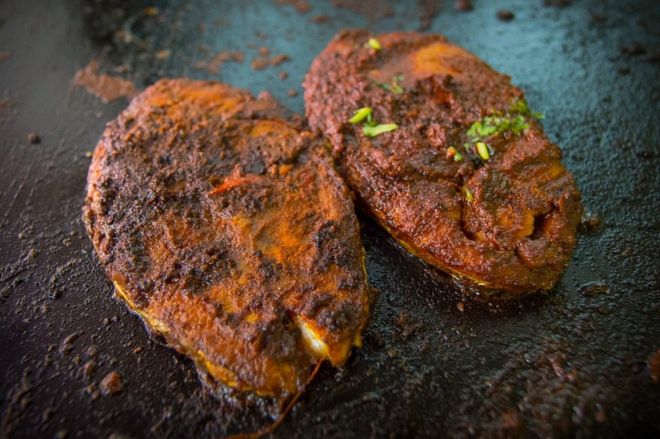
Giri Manjas, Mangalore
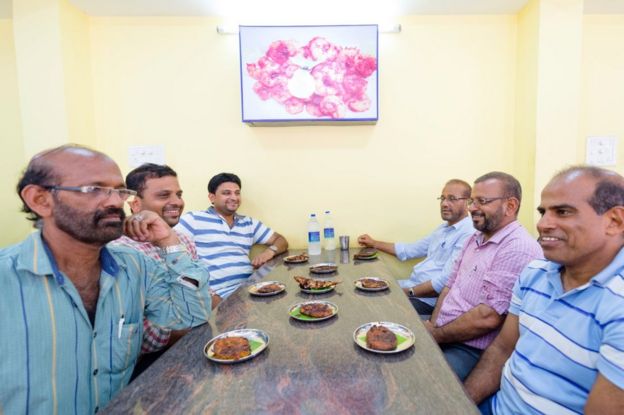
Giri Manjas has established itself as an institution in the southern coastal city of Mangalore. It's a small eatery and people have to often wait patiently for their turn to eat its signature fish fry.
Seating only 25 people at a time, Giri Manjas serves around 200-300 portions of fried fish to its customers every day from 11am to 9pm.
The restaurant's owner, Nandini M Pai, says the secret of the popularity of her famous dish is "freshness and love".
"We always use fresh fish and spices and we still have the same cooks who started this journey with us 40 years ago. And we serve the dish with a lot of love," she says.
Ms Pai adds that she has no ambition of opening more branches of her famous restaurant because "it's a tiny place for Mangaloreans and we are happy with that".
Alamgir, Lucknow
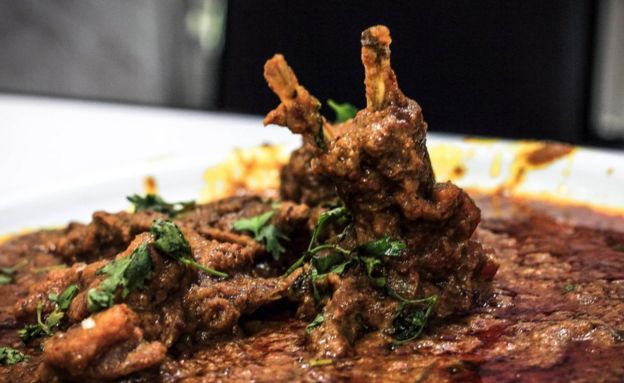 ANKIT SRINIVAS
ANKIT SRINIVAS
To find Alamgir restaurant, you literally have to embark on a treasure hunt along the tiny winding bylanes of old Lucknow city in northern India.
But the hard - and often confusing - work is worth it just for the mouth-watering taste of bund gosht, which literally translates from the Hindi as "closed meat".
The owner of Alamgir Mujeeb Ahmed, 30, claims his father Rasheed Ahmed invented the famous dish in 1963.
He explains that the dish is named bund gosht because "the meat, spices and herbs are mixed and then cooked in a sealed pot for hours on a low flame".
However Mr Ahmed is not as forthcoming about the actual recipe, saying it is a "closely-guarded" secret.
"The recipe stays in the family. I learnt how to cook it from my father when I was 10 years old," he says.
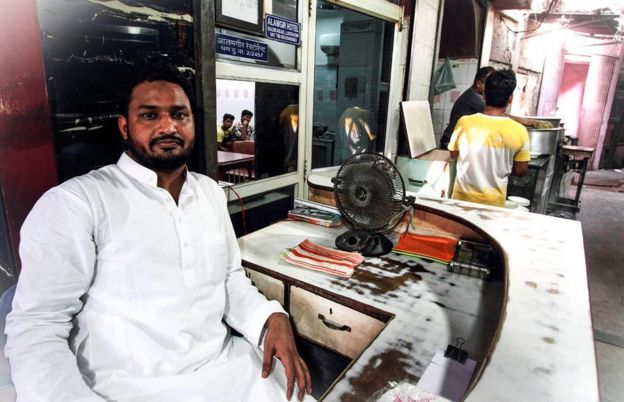
Mylari Hotel, Mysore
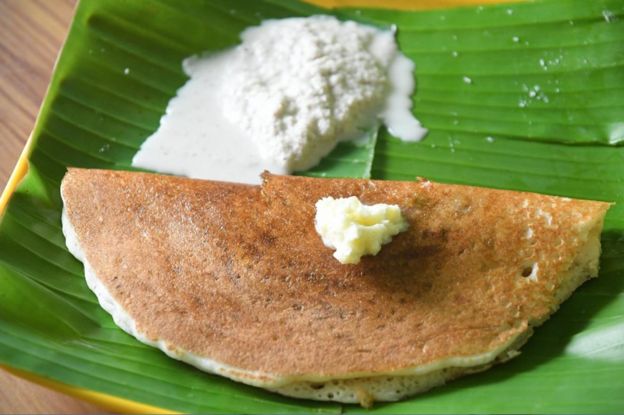
The dosa, a crispy, savoury pancake, is a staple dish in most restaurants in southern India.
But if you are trying to find one of the best dosas in in the region, do pay a visit to the city of Mysore.
More than 80 years have passed since the first Mylari dosa was served in this tiny restaurant, but very little has changed, including the taste.
Unlike most other dosa variants, the Mylari is moist and almost melts in your mouth. And the coconut-based chutney that accompanies the dosa also has a unique taste.
But when asked what goes into making it, the proprietor M Rajashekar says "let it be a secret".
The recipe was invented by his father N Mylareshwara Swamy.
"Our recipe hasn't changed. My mother is 74 but she still keeps a very close eye on the ingredients to ensure that our taste remains the same," he says.
Hariram Samosa, Allahabad
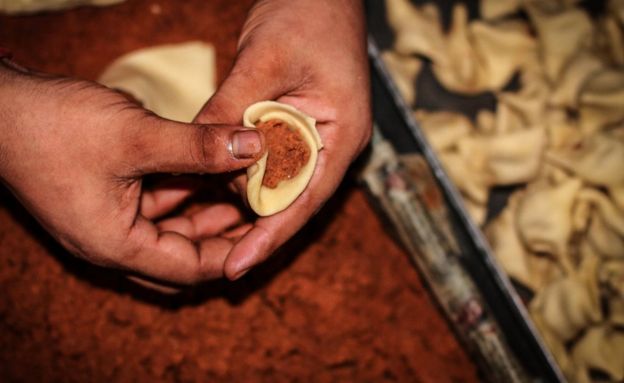
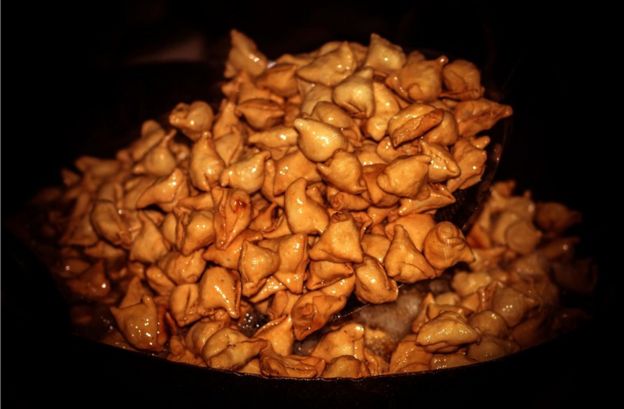
The samosa, a savoury pastry often filled with potato, spices and onions, is one of the most popular street snacks and is sold in tiny shops across the country.
But in the 1920s, Hari Ram gave the snack a radical twist, inventing what is now known as the "Hariram samosa".
He used finely-ground spices as the filling and added some herbs to the pastry. The result was a mouth-watering dish which made the shop an instant hit in the entire region.
More than 90 years later, his son, Sri Ram, continues his legacy.
"Our samosas are different because you can keep them for a month, unlike normal samosas, which you have to eat on the same day," he says.
But again, he refuses to reveal the recipe.
"Forget the recipe and just enjoy the samosa. I will ensure that my family continues to run this shop even after I am gone and that too without changing the recipe," he says.
Babu Bawarchi Biryani, Delhi
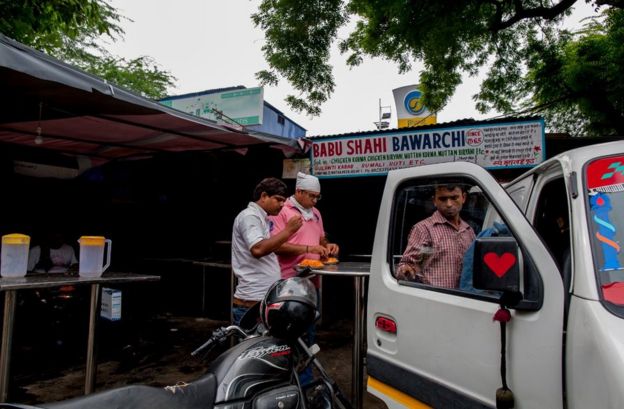 MANSI THAPIYAL
MANSI THAPIYAL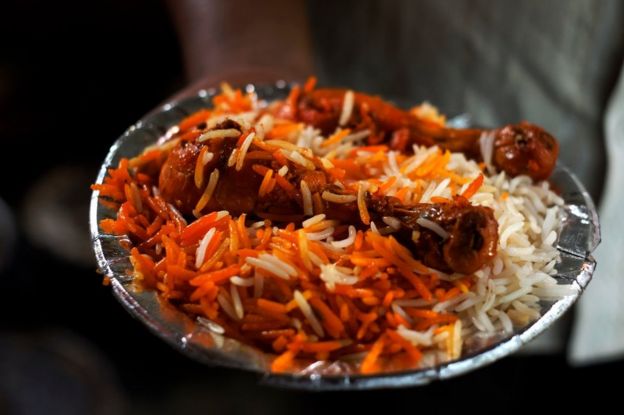
Babu Bawarchi is a landmark for food lovers in Delhi. The humble shop has been selling its unique biryani, a one-dish meal made of rice, aromatic spices and meat, since 1967.
The shop's main chef and owner, Moinudeen, says he is the fourth-generation chef of his family.
"My father invented the recipe of our biryani and I learnt it when I was 12-years-old, but only after four years of hard work," he says.
"Our recipe is complex and involves several stages of cooking. I don't mind sharing it with you, but you will need at least five years to master it under the watchful eyes of a senior chef," he explains.
He adds that he wants to keep the shop small and humble to ensure that "everybody, rich or poor gets to taste the biryani".
"If you haven't eaten biryani, you haven't lived," he says.


Comments
Post a Comment